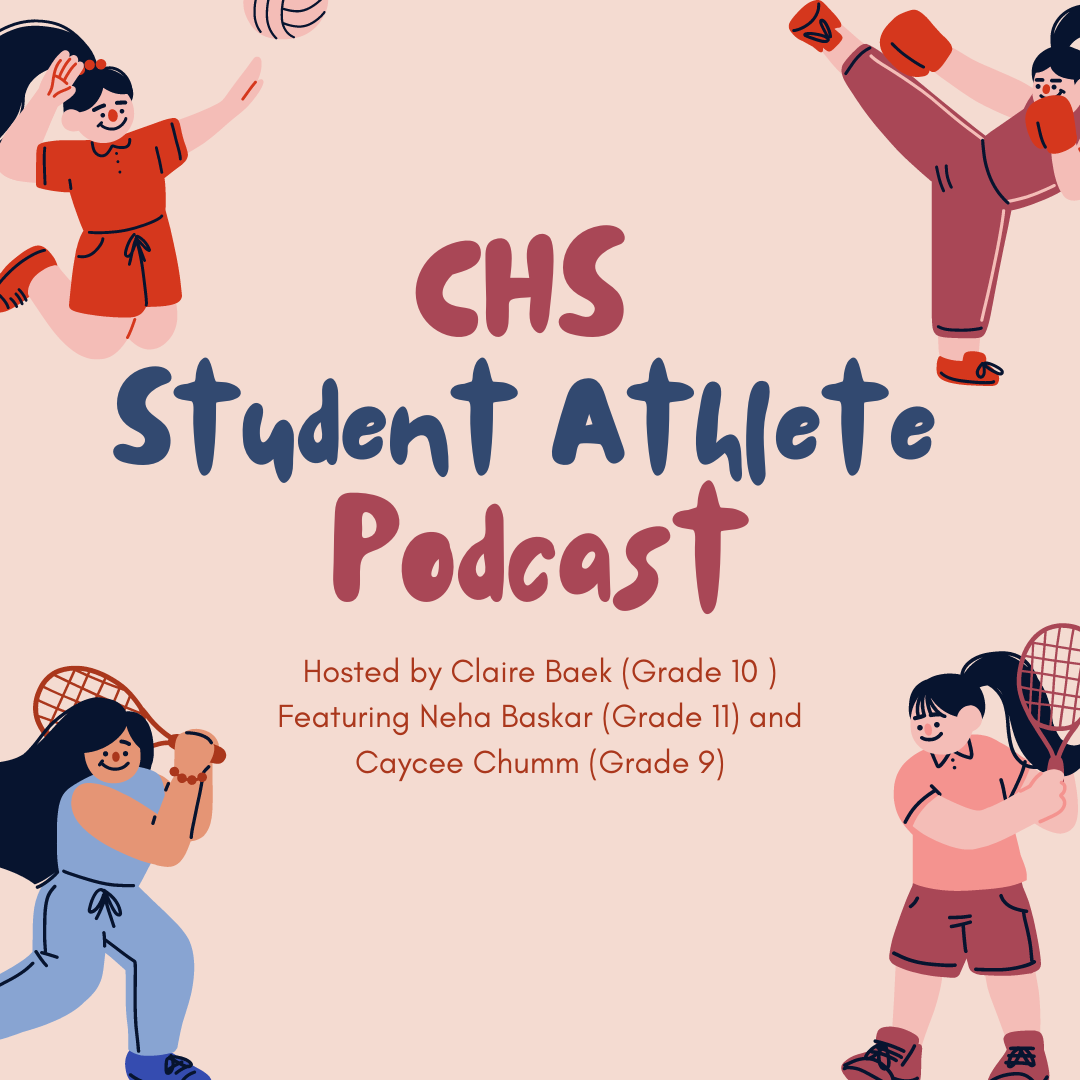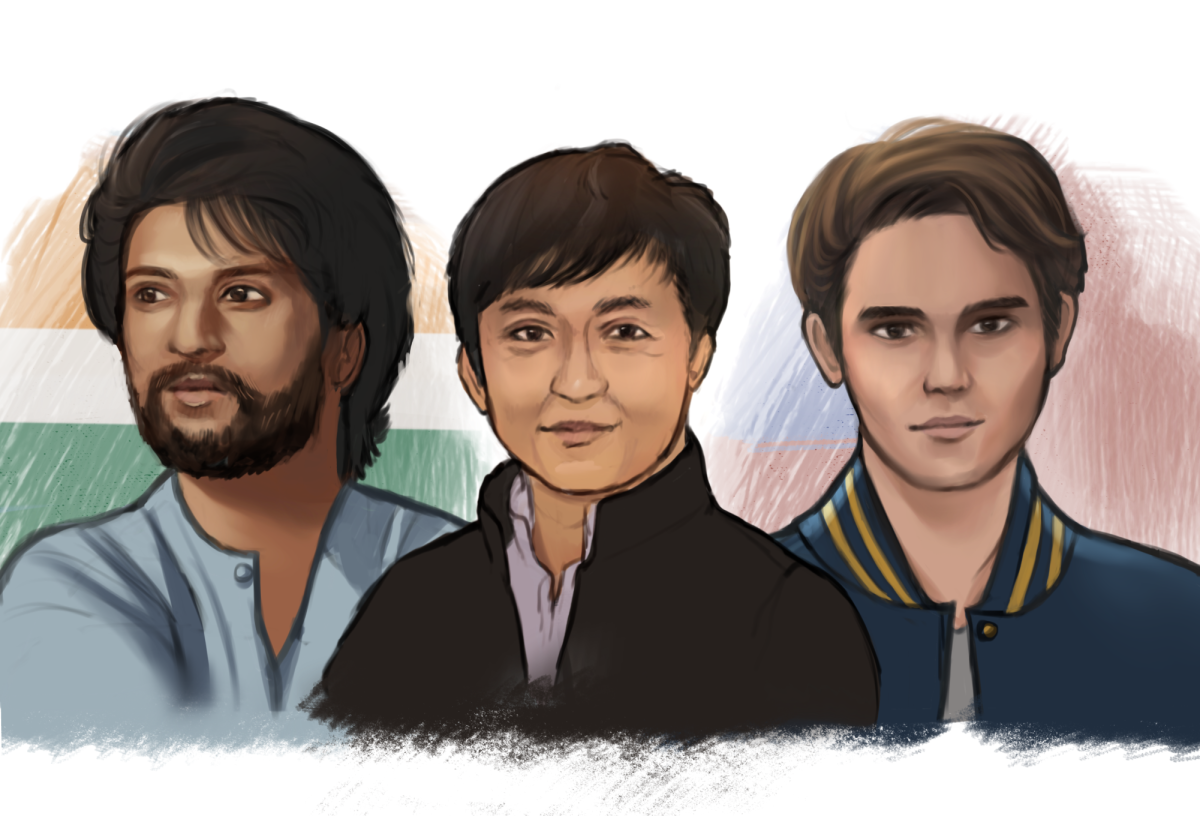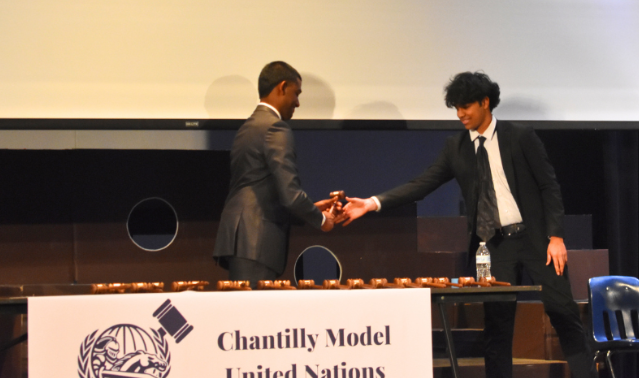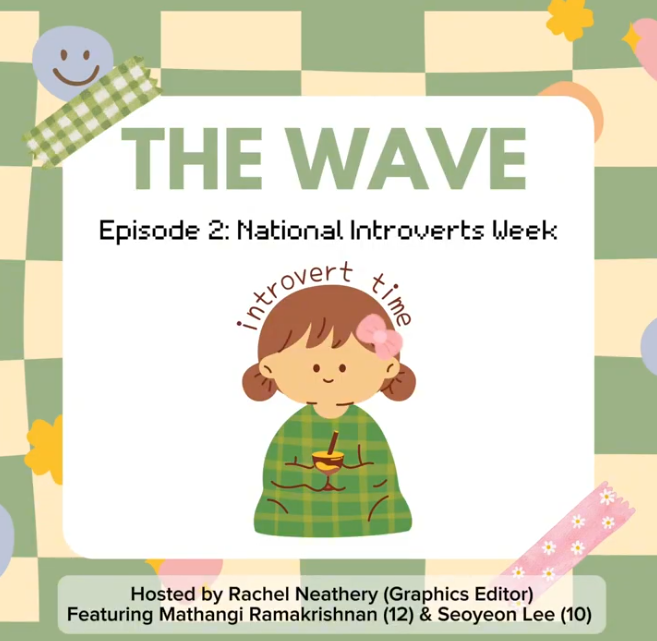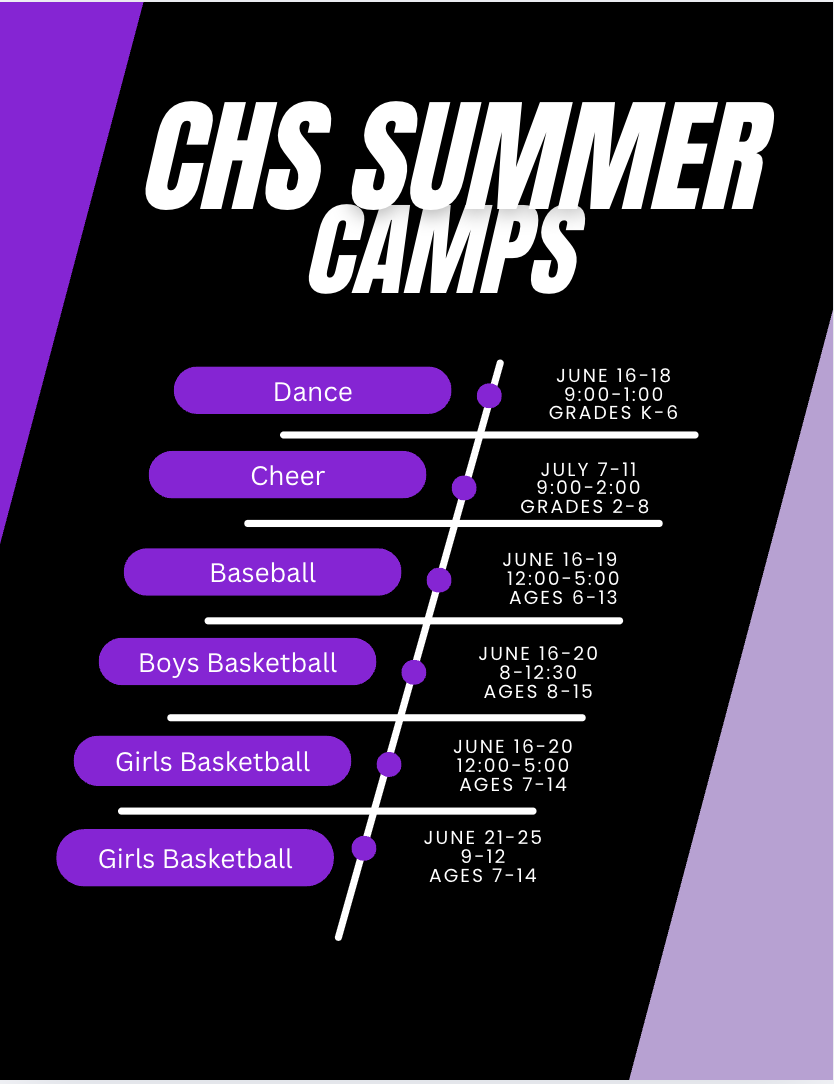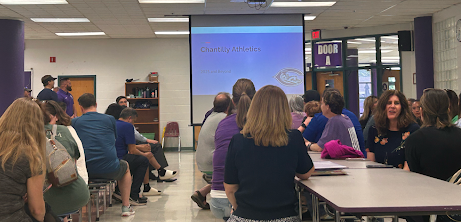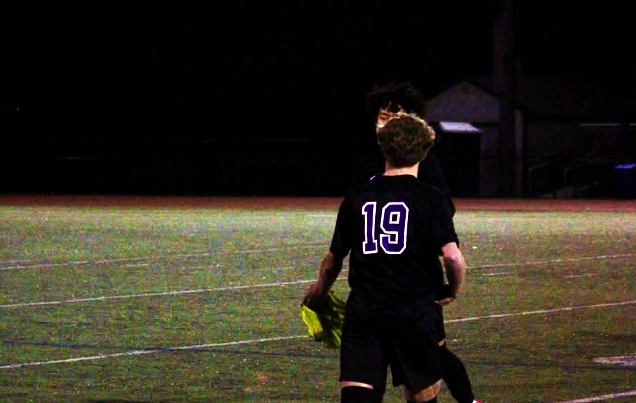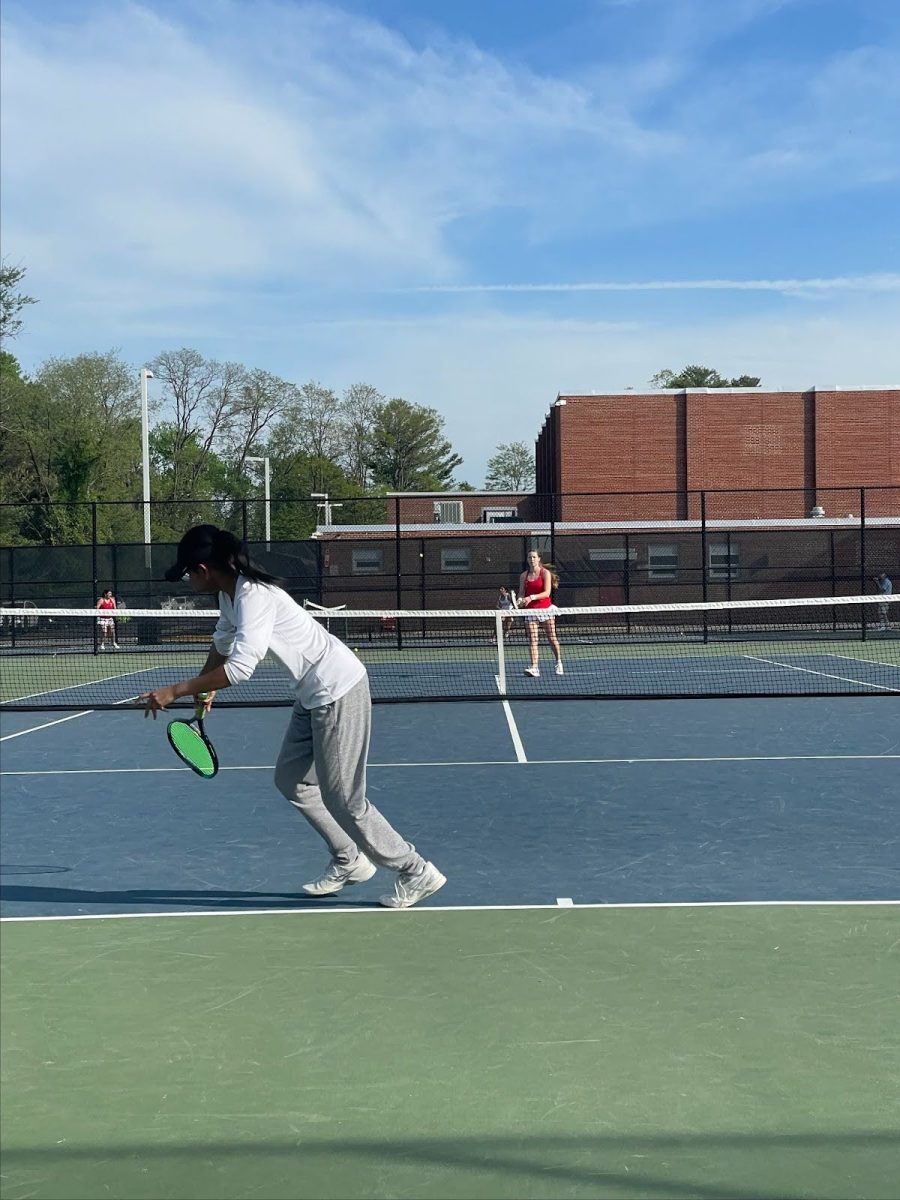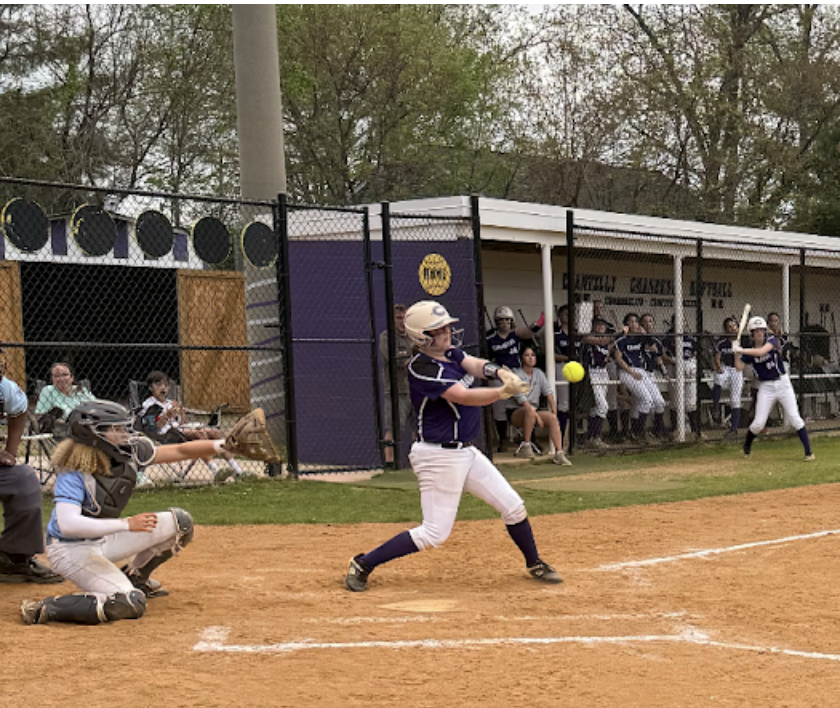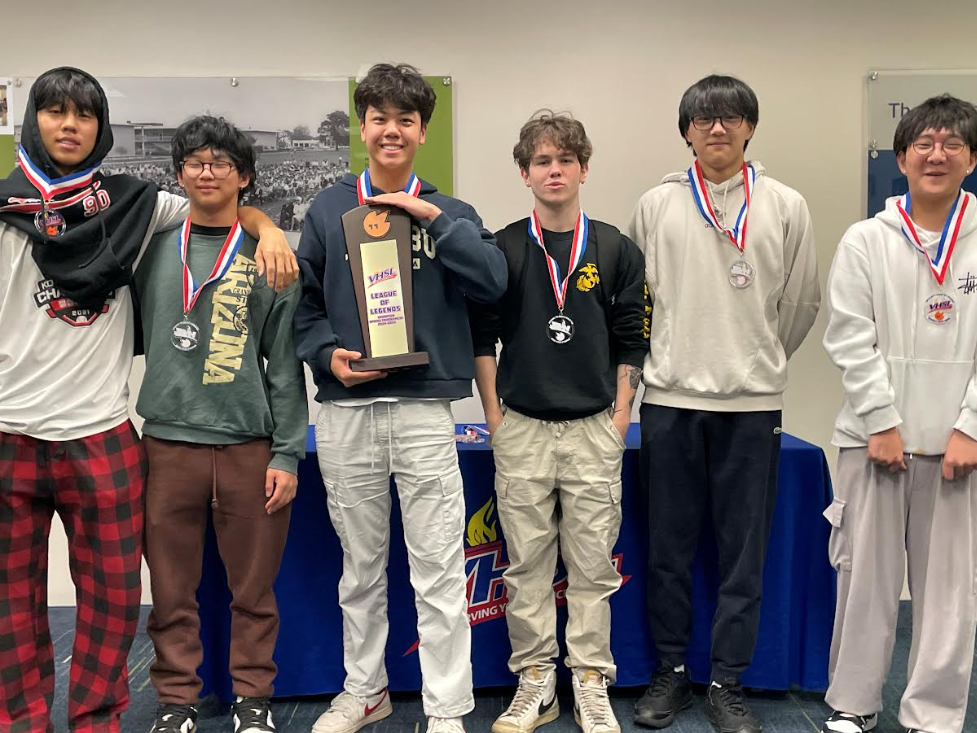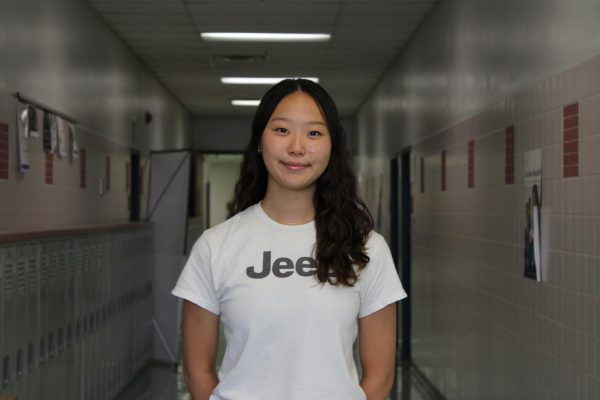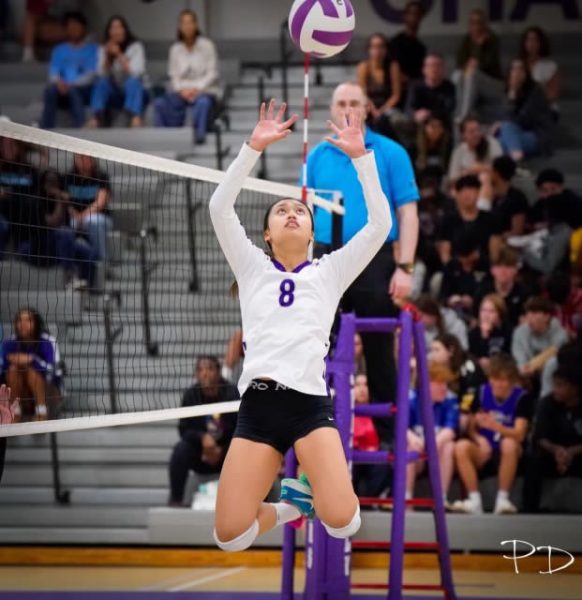
TRANSCRIPT
Claire Baek (10) 0:00
Hey everybody. This is Claire Baek the sports editor of The Purple Tide, and today I am back with a podcast on how student athletes balance out sports and school. So today with me I have Neha Baskar and Caycee Chumm. Would you guys like to introduce yourself?
Neha Baskar (11) 0:37
Hi, I’m Neha Baskar. I’m a junior, and I played basketball my freshman and sophomore year, and now I do track in the winter and the spring.
Caycee Chhum (9) 0:46
Hi, my name is Caycee. I’m a freshman. I’m on our varsity volleyball team and I also play club for Metro 15s.
Claire Baek (10) 0:53
And I’ll go ahead and introduce my sport. I do rhythmic gymnastics, and it is not a school sport, but I do it at Gymnastics World in Woodbridge, Virginia.
So, we’ll go ahead and introduce how we started our sport.
Neha Baskar (11) 1:08
The way I started my sport is that I’ve been playing basketball since I was really young. Once I got to high school, it was less doing it full time and it was just in the winter. I really wanted to do a spring sport, and since I played soccer when I was little, and I haven’t played soccer in a long time, I thought I would try something new. I tried track and I ended up being pretty good at it, and I liked it a lot so I decided to stick with it full time.
Casey Chhum (9) 1:31
Yeah, for me, I just played a lot of sports as a kid. I played soccer, I did gymnastics, taekwondo, and then I started rec volleyball in about fourth grade, and it just kind of stuck with me.
Claire Baek (10) 1:42
I started because I just watched a famous rhythmic gymnast and I was just inspired. I was like, that’s so cool, I want to do that. So that’s how I got started, and then I guess, like Caycee, I just stuck with it.
So, next we will talk about how our school workload compared to like last year, previous years,
Neha Baskar (11) 2:00
Definitely see the workload junior year is a lot bigger than the workload freshman and sophomore year, just because it’s more advanced classes. And then, I also feel that sports has gotten easier as I’ve gotten better at the sport and I’ve had to work more at it. And so, I think this year, it’s a little harder to balance sports in school just because there’s a lot more of everything.
Caycee Chhum (9) 2:18
Yeah, I’m feeling the same way; the transition from middle school to high school was definitely pretty big because in high school, it’s just more independent, everything’s on you. You can’t really rely or as much as on teachers for reminders and stuff.
Claire Baek (10) 2:32
Same for me. I’m a sophomore now, but during middle school, I would say I missed a lot of school because of competitions around the country. I guess sophomore year, I am kind of taking some rigorous courses, so it’s been really hard. I’ve been having to skip many practices because of homework and studying for quizzes and tests. So I think, as you shift, grow old, kind of, I guess balancing out school and sports gets harder for sure.
Neha Baskar (11) 3:04
I think the thing about taking a lot of high level classes is it’s not as much stuff you can do kind of passively that you can just do without thinking because I think sports really powers people out a lot, so that they have less energy to put in their schoolwork. But as the work gets more abstract, and you have to do more thinking at higher levels, rather than just memorizing stuff or writing stuff down, it gets harder to kind of balance the amount of energy that you have, because of sports with the work that you’re actually doing.
Caycee Chhum (9) 3:28
Yeah, kind of the same thing for me. I feel like it’s more open-ended questions. There’s not really things to just memorize, go to the test and take it. It’s definitely very different from middle school also.
Claire Baek (10) 3:39
Is there any specific experience where you had a hard time, maybe like a specific moment where you were struggling to balance out school and sports, and what did you do?
Neha Baskar (11) 3:52
Freshman year at districts during spring track, I had a big research paper due two days after that. We’d been working on it for months and it was pretty much the biggest time of the year. I’d been managing my time pretty well leading up to that and I had planned out what I was going to do each day. But on the second day of districts, somebody passed out in the middle of a race and the meet was delayed by an hour because they had to wait for an ambulance to come and take the person that passed out away, and so I got home after midnight. I had to miss a little bit of school the next day just because I was so tired from being out so late on a school night and I just had to communicate with my teacher. I had to ask for an extension on the paper because I wasn’t able to complete the work that I would have been had I had the time.
Claire Baek (10) 4:42
I can really relate. Most of my competitions aren’t in Virginia; they’re usually in other states because there isn’t really a big rhythmic gymnastics community in Virginia. As I travel to different states I have to leave usually on Friday, so I miss school Friday. Then I have competitions over the weekend, and I return home around Tuesday because it’s a day trip home. Missing two days of school every week is totally absurd. I feel like I was really struggling even last year, and this year, the competition season for me has already started, and I’m already starting to feel the stress.
Caycee Chhum (9) 5:20
Yeah, I’m also feeling that build up. Then, for me, what happened in the season was, I actually take AP Precalculus online, so I would have to take my class during games, because it happened to be at the exact same time. Every single time I would rotate out of the game, I would pull out my laptop on the bench trying to see what’s in class. But what kind of helped me with it was just communication with my teachers and coaches, trying to work things out with what schedule would work and how my friends kind of would tell me what we did that day, what homework we have, trying to catch me up. It was just really helpful.
Claire Baek (10) 5:58
I don’t know if it’s just me, but I prioritize school over my sport, and sometimes I’m debating if going to practice is the right thing to do, going to a competition is the right thing to do, especially when my grades are suffering. Sometimes my parents are like, “Claire, make sure you know what comes first and what comes second.”
Neha Baskar (11) 6:20
Yeah, I think that’s one thing that’s really different about playing a sport at the school versus playing a sport in a club or outside of school. I think coaches in the school know that academics are supposed to come first and that’s really pushed on them, and so all the coaches I’ve had have always been, “You’re a student athlete, that means student comes first. If you ever need to miss practice to make up a test, or something like that we understand just communicate it to us.” I think that’s one difference between rhythmic gymnastics or club volleyball.
Caycee, do you see that in your club coaches versus your coaches at school?
Caycee Chhum (9) 6:51
Yeah, I definitely agree on that. Even though it’s my first year of high school, I see the importance [school sport coaches] have on education. I would say that the club coaches, they’re kind of more sports before education, because they just sometimes want to win at the end of the day, which is understandable. But, that’s kind of why I do really enjoy the high school experience kind of more than club in a way.
Neha Baskar (11) 7:15
I also think that’s what kind of takes a little bit of the stress out of school because you have something to look forward to at the end of every day. You always know that, even if school is going hard, you have teammates who are going through the same thing, and it just kind of builds a community. I think it can make school harder, but it can also make it easier in some ways.
Claire Baek (10) 7:40
As I transitioned from middle school into high school and everything started getting serious, like grades it’s so stressful to do the sport. You start questioning, “Do I really like this sport?
Do I still love it like I did when I was younger?” Because it was, like you said, something I looked forward to: going to practice, meeting my teammates, and having some fun while doing the sport. I loved it, but I guess as I went into high school, it was just so stressful. A lot of my teammates started dropping out because they want to focus on their education as well. It’s like a love-hate relationship sometimes. So yeah, definitely agree on that point.
Neha Baskar (11) 8:06
All people that are still in this at this point are doing it because they love it, and so that kind of creates some community with like minded people.
Caycee Chhum (9) 8:13
Yeah, definitely. It shows the passion you have on just how hard you can work to be able to keep both things in your life.
Claire Baek (10) 8:22
Lastly, we will discuss some tips that we have for student athletes out there and in Chantilly, High School and other schools or like people who do club.
Caycee Chhum (9) 8:31
I think my biggest tip would be learning how to compartmentalize academics and sport. If you fail a test in your academics, you shouldn’t take it out on the court, or if you lose a game, don’t let it affect how you’re studying or how you’re learning. It’s just two separate things that should be kept separate, and you shouldn’t let your emotions take over during times like that.
Neha Baskar (11) 8:52
Yeah, I totally agree, compartmentalization is really important. I also think that people need to kind of take it easy and not stress out too much, because if you’re stressing out about balancing sports and balancing schoolwork, you’re never going to be truly happy with what you’re doing. I think that kind of taking a step back and putting yourself first, because you’re truly a person first and a student and an athlete second, it can kind of help people have a healthier mindset going into balancing sports and academics which makes everything easier overall.
Am I allowed to ask a question?
Claire Baek (10) 9:25
Yeah.
Neha Baskar (11) 9:26
How is being a student and an athlete at once helped you in your academics or helped you in your sport?
Caycee Chhum (9) 9:30
I feel like building a relationship with a team that I have kind of formed bonds with and just helps me academically, as it’s just motivating that there’s other people that are doing the same thing. We’re trying in sports, we’re trying in academics, and some of us are trying to get recruited D1, D2, D3, anything. It’s just relatable. You can tell your stories. They’re just kind of there for you.
Claire Baek (10) 9:53
Yeah, I understand the community that you have within the school is really, really special. I think that I’ve learned, well it’s kind of cliche, but a lot of people say that they learned not to give up. And, I think that’s certainly one that’s really, really prominent in my life, not just in school, but in life in general. There are many, many competitions where I totally just screw up and then I find myself actually crying about it a lot, but at the end of the day, you’ll go back to practice, you’ll go to another competition, and maybe in that competition, you’ll do well, maybe not, but there always be a next step you can take. I think that’s something similar with tests at school. If you do bad on one, if you know you studied really hard for it and you tried your best, you might still be sad, but you know that next time when you do a retake or when you just study for your next test, you’ll know what to work on, you’ll know what to improve on. There will always be a next test for you to take. Even if it’s your last test of, for example, your sophomore year, you’ll have another one in your junior year. I think it’s something a lot of student athletes can relate to. It’s really cliche. A lot of people say, “Oh, yeah, I learned not to give up,” but I think there’s more to it than that.
Caycee Chhum (9) 11:08
I agree. Because I feel like student athletes, since we have so much experience going through things, we take in failure better and it just becomes more of an educational situation, how you’re learning from your mistakes kind of thing, another kind of cliche quote.
Neha Baskar (11) 11:24
Yeah, I’ve had some of my closest friends through sports, and then they also become my school friends. I think having the same people that you see everyday, both in your classes, and that practice just helps me in every way to help me be happy and enjoy. I’m just along for the ride, so I might as well enjoy it.
Caycee Chhum (9) 11:38
Yeah, along with relationships. I feel like, through sports, you kind of meet people that you wouldn’t at first go up to, especially with upperclassmen. I feel like, as underclassmen, it’s a little scary.
Claire Baek (10) 11:51
Yeah, I understand.
Caycee Chhum (9) 11:53
Yeah, so I feel like I’ve been able to meet some upperclassmen who have influenced me; they encouraged me, especially my academics. They tell me how it’s going to be okay. It’s all going to work out in the end.
Claire Baek (10) 12:04
I feel like a lot of people say, “Oh, you must be so busy,” but there’s a lot more to that. They just don’t understand, but I hope through this podcast, more people can understand what it’s truly like to be a student athlete. Even though we might seem really busy, we really do enjoy it every step of the way. It makes us grow as a person, as a student, as an athlete, and there are as many ups as there are downs to being a student athlete.
So that is all for our balancing sports and school podcast. I’ll see you guys next time.


